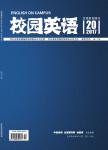The Critical Period Hypothesis of Second Language Acquisition and School English Teaching
The Critical Period Hypothesis of Second Language Acquisition and School English Teaching作者机构:广西大学附属中学
出 版 物:《校园英语》 (English on Campus)
年 卷 期:2017年第8期
页 面:83-84页
学科分类:0502[文学-外国语言文学] 050201[文学-英语语言文学] 05[文学]
主 题:Critical Period Hypothesis second language acquisition school English teaching
摘 要:The Critical Period Hypothesis believe that the younger the learner is, the better he or she can master the language. Based on the Critical Period Hypothesis and empirical research, the author points out that learner at different ages have their own advantage to master English. It is untrue to learn a language as early as possible. Thus Critical Period Hypothesis is proved of one-side view. The author suggests that school should make different right teaching plans, according to different advantages at different ages. Finally, the author provides some suggestions and strategies on school English education in the context of China.



